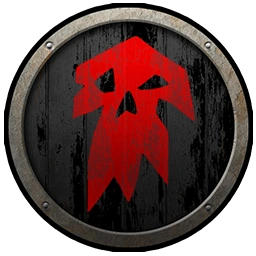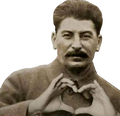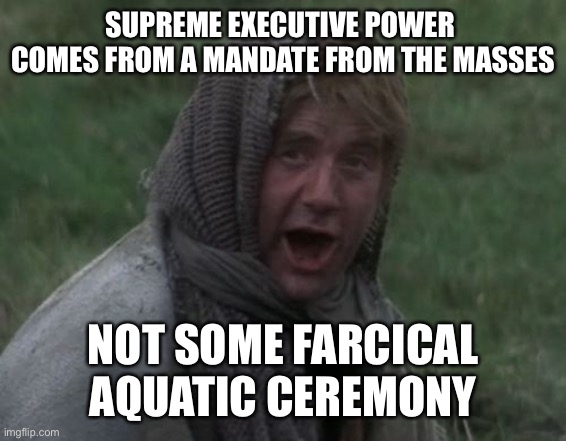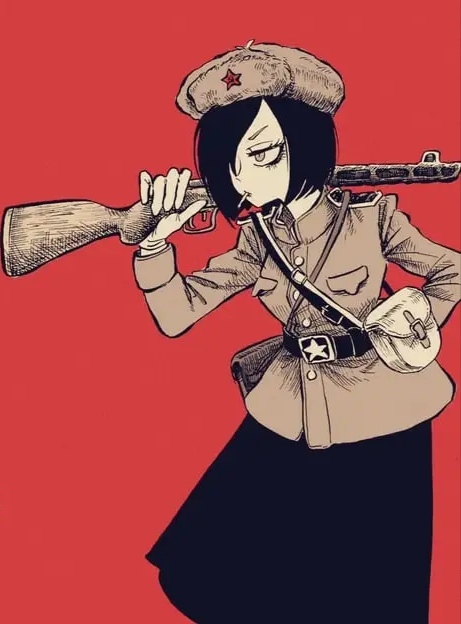There are many things wrong with this, but weren’t literally all of the “Never” countries absolute monarchies at some point?
Also unsurprising but still funny how every single Soviet state within the Soviet Union is ruled a dictatorship despite having been far more democratic than any of the countries listed outside it.
orban is apparently not a “dictator” (this contradicts standard EU opinion and also reality) wat.
they are still monarchies to this day, and they aren’t just ceremonial despite beliefs of that. They still have institutional power, veto powers and political tools.
I don’t think Switzerland ever was.
If you really wanted to split hairs you could go back to the Helvetii tribes and say they were dictatorial with the fast and loose way they use the term. It doesn’t matter though because this is all a waste of time and OOP has rocks for brains.
The Helvetic Republic era was the closest
Finland has not been a monarchy since the Russian revolutions, and prior to that they had foreign monarchs. There has literally never been a Finnish king. (Unless we count Frederick Charles, and we shouldn’t)
They did ally with the Nazis tho and killed a ton of their own civilians.
Yes. But that’s still not a king.
Those weren’t concentration camps, those were internment camps.
Yes
Dumb anti-communism aside,
Britain/Netherlands still have a monarchy (and there is actual domestic opposition to them, since they aren’t as powerless as the PR says).
France had De Gaulle. Erdoğan is not a dictator. Putin, even if you hate him did actually win the elections (and no, skirting around term limits does not make you a dictator).
Zelensky is literally serving an unelected term. It’s constitutional yes, but that just makes him a constitutional dictator.
Even if you don’t count de Gaulle, you have to count Pétain.
Re Zelensky, forgive me if I am wrong, but isn’t one of the current defining qualities of a dictator their brutality and fascistic rhetoric? Or is this framing of him based on the powers he has access to within the framework of the Ukrainian government?
I am using the definition “is this person serving at the highest office there with a legal electoral mandate from the people?”
Which is frankly an idiotic definition of “dictator”, but it suffices to critique this infographic from its own liberal logic, as in “you didn’t even get the basic googlable facts correct”
The “real” (one that I think is most useful) definition of dictator is one who has the power of being able to use dictat (executive order). That is of course, the literal origin of the term from the roman republics, where “dictator” was an official position, that you were appointed to and could serve for a maximum of 1 year and was only used in times of emergencies/wars. It’s kind of funny how the liberal understanding of the term is in many ways the literal opposite of the actual historical position that inspired it.
A “Dictator” as I see it is someone rules above collective leadership (most modern presidents are dictators) a and “dictatorship” is a government that can makes major decisions without referendum (“liberal democracies” are basically 100% of the time dictatorships of the bourgeoise).
I knew about the origin of the word, just didn’t match context of his the word is used now, so didn’t seem especially relevant.
That last bit is useful and appreciated. I’m just very used to the term carrying a different negative connotation (ie, not related to the bourgeoise), so the framing felt odd without additional context for myself. Ty!
The context of the way the word is used now is purposely vague and vibes-based. It is functionally useless in political science discussion that way other than ‘leader of the designated enemy’.
That last bit is useful and appreciated. I’m just very used to the term carrying a different negative connotation (ie, not related to the bourgeoise), so the framing felt odd without additional context for myself. Ty!
I just noticed a spelling error. I said that dictatorships rule with referendum, whereas they actually rule without referendum. I hope I didn’t cause any confusion.
I figured as much. Ty
A single NEVER hovering over both Britain and Ireland is a nice touch
Is a nice OUT OF touch
You’re out of time but you’re out of my head when you’re not around
Ah yes, when the Soviets were ruled by the iron fist of Mikhail Gorbachev, the Pizza Hut guy.
If they had the vodka guy, the Pizza Hut guy, the corn guy, and the big spoon guy, then what was Lenin?
 little salami as a treat guy
little salami as a treat guy
Oliver Cromwell? Even British libs think so
“jewish_israeli_mapping” yeah that figures — what makes Putin count but not Orbán or Quisling?
what makes Putin count but not Orbán or Quisling?
well you see, you silly tankie, I’ve heard of Putler before but not those other guys


The words “dictator” and “authoritarian” are the two most destructive words to critical thinking that exist.
My moron cousin told me communism is bad because it’s authoritarian, you end up with dictators and you don’t have freedom. I shit you not. I no longer engage with people like that. Like propaganda has turned you into a literal NPC
Monarchs are dictators
They’re generally excluded from the definition.
why?
In part because of the historical origin of the term dictator, so a monarch would inherit power while a dictator would rise from a republican government. In part because the fact that the British government isn’t meaningfully freer than what they call dictators would hurt their pride
Monarchies and dictatorships are just different flavors of authoritarian rule. They aren’t the same but their effect on the population is essentially the same. The comparison is fine, but for people to whom “words mean things”, the distinction may be more important.
Is their any difference between a hereditary dictatorship and a absolute monarchy?
Not enough that I care to personally differentiate the two. Am I am vaguely aware of the historical differences/context, but that’s mostly a byproduct of making an effort to not misinterpret other people’s discussion.
Ok but putting 1870 for france and ignoring the kings in other countries is a bit of mistake.
Well, a king isn’t a dictator because a kind rules by divine right sweaty
It’s an anti-communist propaganda piece, not an actual historical analysis.
Napoleon self couped and overturned the constitution. A comparable person would be king Zog of Albania
Imagine labelling all those countries with former monarchies as “never”.
England had Cromwell, who fits most liberal definitions of dictator.
East Germany wasn’t a dictatorship? Was this made by a TANKIE?
the irish simply had an amicable discussion with the brits
Quisling?
The rule by department chiefs in Denmark?
Cromwell?
Petain?
Nazi rule in the Netherlands and Belgium?Denmark, being a monarchy, has had plenty of dictators. For some reason though the term dictator is often understood not to include monarchs and you can argue where the exact line should be drawn between a leader being a dictator or just a really big asshole. Here are some candidates for the title of “last dictator of Denmark”:
Johann Friedrich Struensee (1770-1772): Prussian court physician who gained the trust of the absolute monarch Christian VII who was suffering from severe mental illness. Struensee also gained the trust of the queen to such as extent that he is widely considered to be the father of one of her children. He was appointed de facto regent by the king who was too unwell to govern and given a blanket authorisation to issue decrees. He embarked on an ambitious programme of modernisation and sensible liberal reforms such as banning torture and the slave trade, fighting corruption, enacting meritocratic hiring policies, land reforms giving land to peasants and abolishing censorship. People hated him for it and the newly freed press vilified him. Eventually Struensee was toppled in a reactionary coup centered around the queen dowager and executed by public beheading.
Frederik VIII (1848): The last absolute monarch. As heir apparent he had led a tumultuous life, he possessed no talents speak of and he showed little interest in matters of state. In 1848 at the age of 38 he became king when his father died as the result of bloodletting-induced sepsis. Liberals had long pushed for a modern constitution that would introduce democratic elements to the government and revolutionary waves were sweeping Europe. The work-shy failson king welcomed the idea of not having the bother that goes with being an active dictator and shortly after gaining power he signed a draft constitution, ending the absolute monarchy.
Jacob Brønnum Scavenius Estrup (1875-1894): Conservative prime minister. When the conservatives were defeated in the general elections of 1884 he simply refused to resign. The king and the largely unelected upper house backed him up. When the liberal majority in the lower house refused to pass Estrup’s annual budget in 1885 he made up the concept of “provisional budgets” which he used nine years in a row. The budgets were mostly concerned with spending on the military and the police state. The same year he survived a point-blank assassination attempt which came as a convenient excuse for restricting the freedom of the press, increasing the powers of the police and creating “the blue gendarms”, his own special police force that he used to suppress dissent. In 1894 liberals and conservatives finally agreed to pass a budget and Estrup resigned shortly after. He holds the record af the longest-serving prime minister and to this day his portrait is hung in the must prominent position in parliament’s gallery of prime ministers.
Christian X (1920): Honorary mention for attempting to be a dictator and failing. In 1864 Denmark had lost Schleswig-Holstein in the second Schleswig war. Following the end of WWI referenda were held in 1920 in Schleswig and the northern part voted to rejoin Denmark. The social-liberal government, backed by the social democrats, accepted the result of the referenda but the reactionary forces such as the liberal and conservative parties, king Christian X and several powerful oligarchs wanted more. The king, described by some as “a dim-witted officer type” and “a Mercurial psychopath”, summoned prime minister Zahle and ordered him to call for snap elections. Zahle who was backed by a majority in parliament refused and the king dismissed him on the spot. Instead he appointed Otto Liebe, his personal lawyer who had never been politically active, as prime minister. Strikes and massive protests erupted led by the social democrats and after a few days the king, faced with the threat of a general strike, folded and fired Liebe whose administration has been nicknamed “the administration that never slept”. The king and the reactionaries got their elections shortly after though where they won bigly but they never got any more of Schleswig back. The crisis put the fear of Jesus into the royals who have ever since kept their big mouths shut about anything that could be perceived as “political”.
Nazi occupation (1940-1945): When occupying Denmark in 1940 the Nazis didn’t want to have too much trouble out of it so they aimed for a “peaceful occupation”, allowing civil government to continue mostly uninterrupted. However, political power grows from the barrel of a gun and the Nazis had all the guns, giving them significant influence. Although German soldiers referred to Denmark as “the whipped cream front” and although the occupation of Denmark was arguably among the least brutal nazi occupations the nazis were still nazis, a gang of murderous psychos. The Gestapo hunted freedom fighters with all the barbarism you would expect and gangs of Nazi terrorists carried out terror bombings against random civilians in retaliation for resistance activity.
The dictatorship of the bourgeoisie (now): Do I need to say more?
He embarked on an ambitious programme of modernisation and sensible liberal reforms such as banning torture and the slave trade, fighting corruption, enacting meritocratic hiring policies, land reforms giving land to peasants and abolishing censorship. People hated him for it and the newly freed press vilified him.
Least reactionary e*ro country
a realistic take on what would happen to time traveling lib isekai protagonists
That’s why you keep the censorship.
They hated him because Denmark basically had a regal cult and Struense was more or less openly cuckolding the king. While the reason for the aristocratic resistance to his rule was his liberal reform spree, he was convicted of lese majeste and that was what the press was mostly mad about. One of the big accusations was that he had beaten the king, which was somewhere between unthinkable and heretical.
Somewhat ironically the king’s son would later take power by actually beating the person behind the arrest of struense who had installed himself as regent.
The dictatorship period of Denmark is either the scavenius prime ministership per 1942 or the rule by department chiefs per 1943, it is not the entire occupation as Denmark was allowed to maintain their government
and to this day his portrait is hung in the must prominent position in parliament’s gallery of prime ministers.
Helle Thorning has a wall to herself.
i’m pretty sure that england literally originated the european tradition of divine right of kings with the whole schism with the catholic church and consequent fallout

























